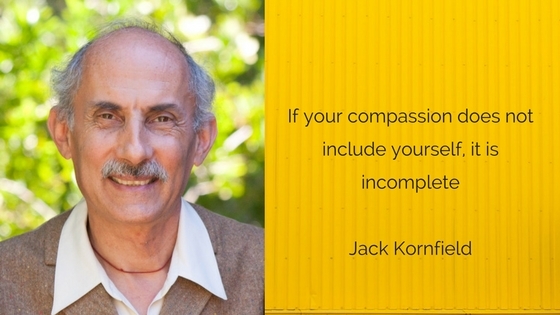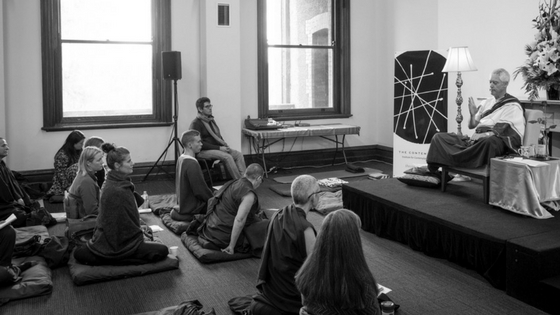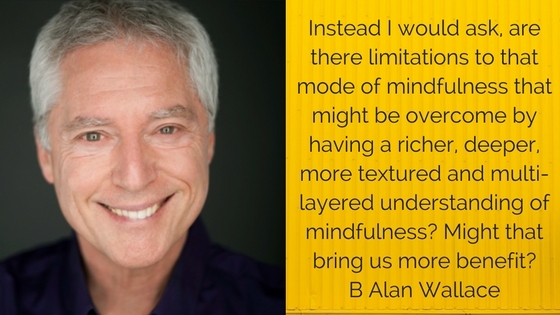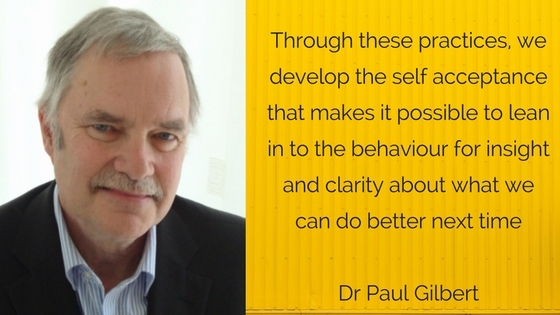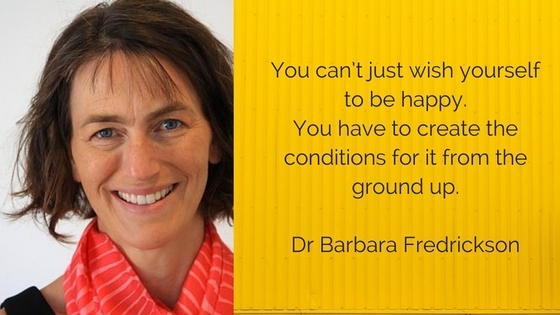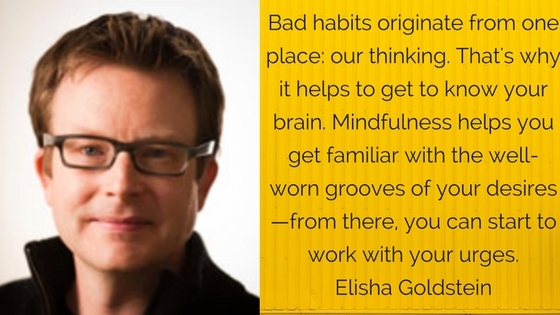The very question invites our judging mind to do what it likes to do best: to form an opinion, to evaluate, to reach a black and white conclusion as quickly as possible and file something away in a pre-existing category because it saves us time in an information-overloaded busy life. It keeps things closed and simple. It can bring up pleasure or displeasure as we form our answer to this question. This is our more habitual way of responding to whatever comes our way. It also invites self consciousness: "ouch, have I been getting it wrong?" and self criticism if we feel we have.
Some would say then, that the question is the very antithesis of what mindfulness is all about: free flowing receptivity, the attentive curiosity of a beginners mindset, acceptance of whatever arises. And discernment - to explore more deeply, to sit with uncertainly and open-ended "not knowing" and to sense what is helpful and unhelpful, wise or not, kind or not - and to allow the question to lead to insight rather than conclusion.
When I first heard that long time mindfulness teacher and former Tibetan Buddhist monk, B Alan Wallace who was ordained by the Dalai Lama, was leading a retreat through The Contemplary on "getting mindfulness right" in my home town of Melbourne I immediately wondered - what was I doing wrong? Cue my self critic! I wanted to hear from the expert - to find out what I was doing wrong and set it right! (I'm in the second row listening intently!)
Mindfulness can often feel like a series of mistakes - people who try mindfulness for the first time can feel frustrated and give up, concluding that they are doing something wrong.
Some of the mental habits listed above can cause me to question if I am "getting mindfulness wrong". I can feel that way when I become aware that I have:
•Been judging something as good or bad rather than staying open and curious about what is unfolding
•Snapped at my children despite my intention to be kind and responsive
•Rushed through my day, getting stressed about how much I want to "get done"
•Spoken harshly to myself rather than wrap myself in loving kindness
•Disconnected from my body and allowed the commentary in my head to lead the way
•Expected reality to be something different to the way it is
More on that another time because I often help people understand where this challenge comes from and find ways to establish a mindfulness practice more easily and effectively. But that's not really what Alan was talking about.
During the retreat, and when I interviewed Alan he explained:
"I am not going around saying that Jon Kabat-Zinn, who is a friend of mine, got it wrong. He got it right for Mindfulness Based Stress Reduction. There is nothing wrong. It's not Buddhism, but there is nothing wrong. It's just different. If MBSR and the kind of mindfulness we all know as moment to moment non judgmental awareness was not useful, not beneficial, we would not have tens of thousands of people practicing it. I don't think that many people are stupid.
"Instead I would ask, are there limitations to that mode of mindfulness that might be overcome by having a richer, deeper, more textured and multi- layered understanding of mindfulness? Might that bring us more benefit?"
"I think the nuances of understanding and practicing mindfulness this way, with introspection, with relaxation, with stability and clarity is much richer. It can be studied and it's more applicable throughout the whole course of the day and in all kinds of activities. Moreover, it can shift the very way we have minds and attend to reality and not simply be a 20 minute practice we use to reduce the stress we have built up without addressing the underlying causes of that stress.
"MBSR doesn't try to address underlying causes, nor does it have any connection to ethics - so it doesn't challenge any materialistic beliefs, assumptions or priorities like consumerism, commercialism or commodification - it doesn't question any of those.
"In which case I say it is limited and it is easily highjacked for more - more money, more this, more that - and becomes completely hedonic. (hedonic well-being is the pleasure focused variety in contrast to the more transformative eudomonic well being which is about deeper meaning and self-realization)
"This is where the "non-judgmental" part can become flat out moral imbecility - as if every thought or notion that comes up is just fine. No it's not."
"I'm not being judgmental I'm just saying: THIS particular motivation and desire is very instructive, very helpful and healthy - but not that one. There is no point in being judgmental - why bother? You are who you are, accept yourself as you are! But as you would for an old friend when you've noticed some behaviour where there is room for improvement ... be discerning and give friendly advice."
This last point reminds me of something Dr Paul Gilbert, creator of Compassion Focussed Therapy said recently: that turning towards our own unhelpful behaviour with compassion doesn't mean letting ourselves off the hook, rather we support ourselves when we have made a mistake but through these practices, we develop the self acceptance that makes it possible to lean in to the behaviour for insight and clarity about what we can do better next time. We are motivated to live with ethical intention.
Alan is inviting us to take that next step deeper and train our minds so that we are in the drivers seat of our attention: where we place it and what wisdom, ethics or "wholesomeness" we bring to our attention. Not just for 20 minutes a day but in the way we live our lives.
That is what it means to "get mindfulness right" in his view.
Going Deeper
There are a range of contemplative practices with long heritages across many spiritual traditions that can help us train our awareness, quieten our minds, explore meaning, purpose and values and transform our suffering into peace, love and freedom. We know that scientific endeavours are also mapping how these practices affect us, investigating how we can cultivate well-being, health and compassion - and that is increasing the popularity of mindfulness in the western world. Training in attention and intention supports a life well lived.
Shamata was the practice we were taught by Alan in the retreat. Shamatha is the calming of the mind through training in focused attention and is the foundation of deeper insight, well-being and conscious awareness within the Tibetan Buddhist tradition.
Retreats all around the world offer the opportunity to go deeper, to integrate mindfulness into our daily life not just as an optional extra "activity" in our day.
An online option to integrate mindfulness into your daily life in an enduring way is an expert led six month mentored program offering substantial support to help you develop a truly self-sustaining mindfulness practice.
In a culture that craves a "quick fix" making this longer term commitment to mindful and intentional living as a way of life isn't as radical as it may have appeared to us even a decade ago. It can start with a moment by moment choice to prioritise our well-being over our habits of the past and practicing mindful awareness in small ways whenever we remember to.
It can be gentle and kind and supported. You don't have to do it alone. Thousands of other people all around the world are making this choice and reaping the benefits. Gradually transforming your life into one that you love is good news for you, your loved ones and the world.
Click here to find out more about a six month program in mindful living
May you be well.
